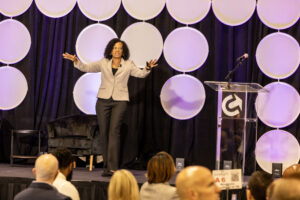Bryan Rudisill, Vice President of NAI Charter
Tired of the uncertainty and volatility of the stock market? Ever considered real estate? There are handsome returns awaiting you, but you have to be cautious. Real estate is risk intensive, so do your homework before buying.
First, consider which area of real estate interests you. Consider the following: residential, office, retail, self-storage or raw land, just to name a few options. Do your research and set specific investment goals. For example, are you willing to wait for an up and coming area to flourish to see your return or are you looking for short-term results, such as quickly leasing an office space in a high demand area for a premium?
Once you know what your objectives are, then get to know your market. How much are you willing to invest? Which market meets your budget? If you say, “I want to earn 10 percent in my investment, and I want to own a cool, brick, multi-story ‘mixed-use’ property on the Southside,” can you do so within your budget and still achieve your desired return? Once you begin your discovery, you may realize that you need to adjust your plan. “Knowledge is power!” “Patience is a virtue.” These are two timeworn clichés but very appropriate when considering commercial real estate investments.
Understanding risks may, perhaps, be the single most important aspect in real estate. Economic and environmental risks pose a potential threat to your success, as does inflation. During the research phase, consider the following:
- What are interest rates doing? Are they stable, rising or falling?
- Does the income from the property leave a profit?
- What is the financial strength of the tenant?
- What are the chances of disruption to that income stream?
- What about the location? Is it improving or declining?
- How does location affect your ability to lease up your space should the tenant vacate for some reason?
Answering these important questions will help you assess the risk involved in your potential venture.
Finally, consult, consult, consult. Talk with community and business leaders and your financial advisor. Talk with other property owners in the market. By all means, I recommend you hire a professional real estate broker to represent you in your search. A good broker knows the market, can help you find the product you desire and will identify risks. He or she will dramatically shorten your learning curve.
A lot of wealth has been created historically through real estate investments. Be target specific. Invest in what you understand. Seek professional advice. Be patient. With a clear strategy and quality representation, you too can be successful in real estate.
*Bryan Rudisill, SIOR, CCIM is Vice President of NAI Charter where he has served for 27 years. Follow him and NAI Charter at www.naicharter.com.








